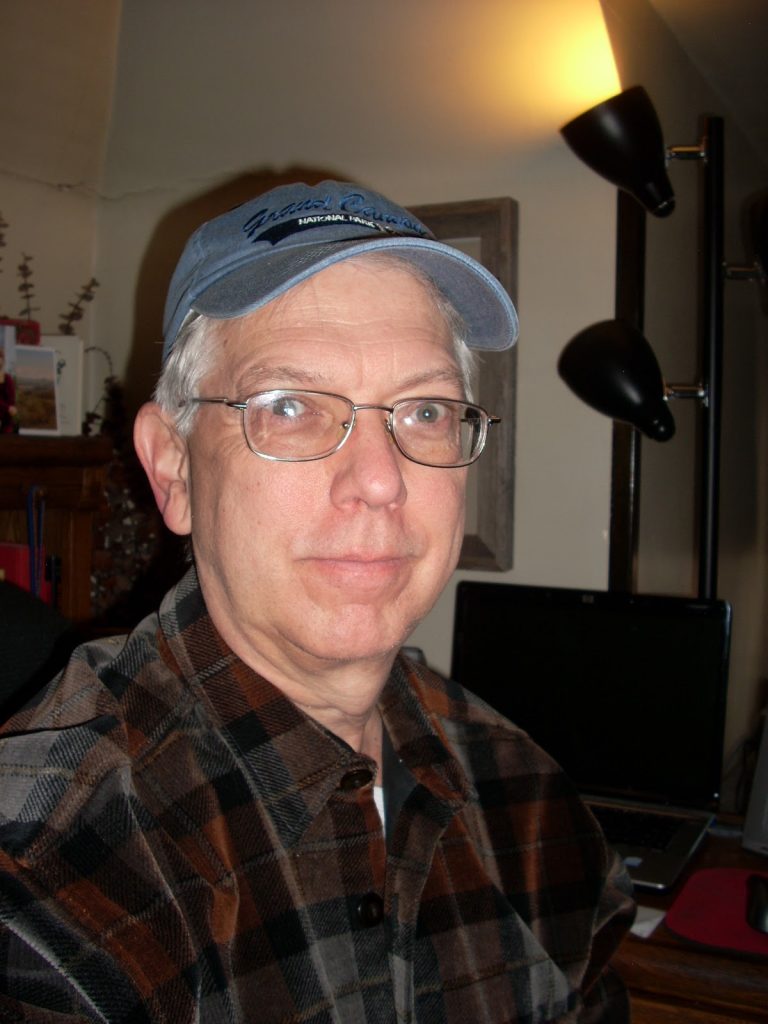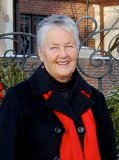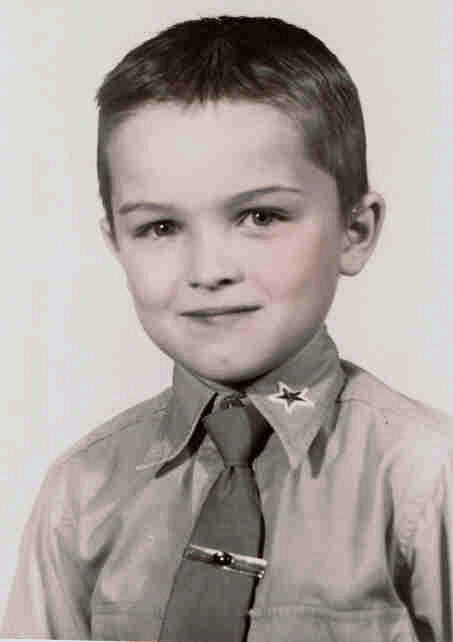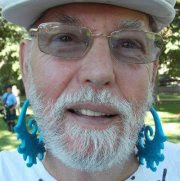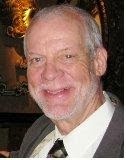[Prologue: My story today concerns not a single life-altering event, such as a car wreck or fall, but a series of accidents of a related nature spread out over a period of many years. A month ago, I told a story of Laurin’s and my experience with various medical doctors and his radioactive seed implants that led to his fecal incontinence. I will not go over that ground again. What I want to tell you today is what the two of us went through during that period of about 8-1/2 years of gradual descent into constant misery and worry. It is mainly about shame and its effect on two human beings. My writing this and sharing it with you is not in any way a cry for pity. I seek only to assuage some of my own shame and trauma that have lay dormant, apparently without possibility of relief, and to impress upon you, when faced with a life-or-death decision about medical treatment for yourself or a loved one, to weigh carefully the importance of quality of life versus quantity.
In an effort not to oppress you good folk with negativity, I will occasionally indulge in attempts at humor. In that vein, in an effort to avoid the constant use of scatological words to refer to the natural end product of the digestive process, I have created an acronym for “End Product of Digestion”, EPOD. This term should not be confused with docking stations for recharging hand-held devices.
Because he was the faithful keeper of a daily journal–a practice which I have now adopted–I am able to reconstruct an exact timeline of his early history with fecal incontinence and deduce, with a high degree of certainty, it’s causation.
Laurin had the procedure known as “prostate seed implant” in December of 2003. Less than three weeks later, he reported the first instance of lack of bowel control with such an element of consternation that I am certain it was the first in his recent experience. Over the next four months, three other episodes followed. Slowly, they increased in urgency and, thus, frequency. What follows is a catalogue of some of the lowlights of our lives during the ensuing eight years.]
* We were walking to church one Sunday morning when Laurin suddenly needed to evacuate. The closest site offering some privacy was behind the large bushes in front of an apartment building. Terrified of being seen, I walked some distance away and stood at the corner trying to appear as if I were waiting for someone to pick me up.
* We drove to Mazatlan, Mexico, for a week’s stay at a timeshare resort. On our last day there, we were having breakfast in the dining room when Laurin suddenly needed to go. When ten minutes dragged out to fifteen, I knew that it hadn’t turned out well. I finished breakfast and went to the men’s room to check him out. There, on the floor was a trail of EPOD leading from the door to a stall, where Laurin was busy cleaning up. Terrified, that someone would come in and see it, I quickly cleaned it up with paper towels.
* We were at a concert of the Colorado Symphony Orchestra. During the intermission, Laurin went to the bathroom. He was gone a long time. I was already seated when he returned. I could detect an odor. I hoped that it was only because I was sitting right beside him. Even before the next musical selection ended, a couple of people stood up and moved to more distant seats. During the interlude, even more did the same. Soon, we were sitting alone in the row.
* We were browsing at the Tattered Cover Bookstore in LoDo. Laurin went to the men’s room. I waited…and waited…and waited. I knew what the problem was. I noticed a line was forming outside the men’s room. I decided to check and see if I could do anything. I stepped inside the restroom where several men were waiting to use the single stall. I was ashamed to even say anything but I asked how it was going. He said, as always, “OK”. I left the bathroom. When he came out we took the 16th Street shuttle. He had EPOD on his socks and shoes. I hoped nobody could see or smell. No one indicated that anything unusual was going on.
* Saving the worst for last, we were driving around Glendale when Laurin said he needed to go to the bathroom NOW. The new King Soopers hadn’t been open long. I dropped him off in front and found a place to park and wait. Fifteen minutes rolled over into twenty. I decided to go and check on Laurin. I asked the security guard where the restrooms were. I turned down an aisle in the frozen food section. From a distance of 30 feet, I could see a pile of EPOD on the floor, perfectly formed like a soft-serve ice cream cone, complete with swirl at the top. I would have laughed out loud if I hadn’t been stricken with utter terror. Apparently, no one had reported it so far. But I had no way to clean it up. I thought, “I should find someone responsible and tell them so it could be cleaned up”. I walked the length of the store but could find not a single employee to tell. Perhaps my fear of how such a bit of news might go down blinded me. I left the store and returned to the car, watching the door to see if security guards were going to haul Laurin away. No, several minutes later–it seemed like hours–he comes sauntering out as if nothing untoward had happened.
It was then, after many visits to doctors about his condition and the utter embarrassment and terror of the “Incident in the Frozen Food Aisle” that we welcomed the additions of Pampers for Men and a shoulder bag with cleaning supplies to his wardrobe. Laurin even resorted to cutting off the tail of his dress shirts with scissors so they wouldn’t get soiled. Once, when I picked up one of his thus-modified shirts at the cleaners, the nice woman politely said, “I’m sorry, we couldn’t repair this.”
On one of our last visits to his internist, we were told, “I have just the cure for you.” I said, “What?” He answered, “Physical Therapy”. We would be happy to try anything so we said, “Sure”. Turns out that this particular therapy, as with many other forms, involves muscle-strengthening–namely, the sphincter muscle. Measuring the strength of that muscle requires the insertion of a probe which is connected to a machine that shows on a computer screen the intensity and duration of the muscle’s constrictions. This is something that would normally be of interest to many gay men but, unfortunately, the equipment is very expensive.
After eight sessions with the therapist, she recommended and the doctor concurred that further sessions would be fruitless. Laurin’s muscle or the nerve leading to it was unable to respond to treatment. I conclude that the seed implants had, over time, fried not only his prostate but this area, as well. Apparently, he was one of the ill-fated 5% that suffer such after-effects.
Laurin’s sole recourse at this point was a colostomy, whereby the colon is severed from the rectum and rerouted to exit the abdomen slightly to the left of the navel. The end of the colon is rolled over like the end of a balloon, sewn into place in the muscle wall, thus creating a new way for the EPOD to escape confinement. Thus, began a entirely new chapter in Laurin’s life story. Unfortunately, it was not to provide a happy ending, but that’s another story.
© 6 August 2013
About the Author
I came to the beautiful state of Colorado out of my native Kansas by way of Michigan, the state where I married and I came to the beautiful state of Colorado out of my native Kansas by way of Michigan, the state where I married and had two children while working as an engineer for the Ford Motor Company. I was married to a wonderful woman for 26 happy years and suddenly realized that life was passing me by. I figured that I should make a change, as our offspring were basically on their own and I wasn’t getting any younger. Luckily, a very attractive and personable man just happened to be crossing my path at that time, so the change-over was both fortuitous and smooth.
Soon after, I retired and we moved to Denver, my husband’s home town. He passed away after 13 blissful years together in October of 2012. I am left to find a new path to fulfillment. One possibility is through writing. Thank goodness, the SAGE Creative Writing Group was there to light the way.
